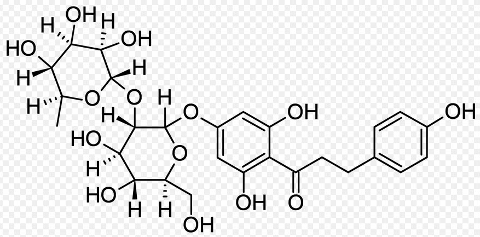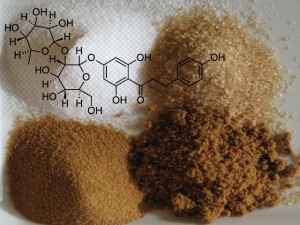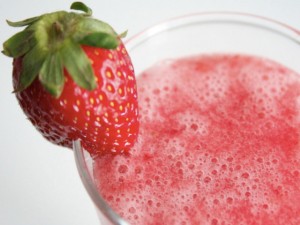 Sweetness can be found naturally in organic produce and artificially, in sweeteners.
Sweetness can be found naturally in organic produce and artificially, in sweeteners.
- Which brand, make or type of artificial sweetener (sweetness) should you use?
- Are all artificial sweeteners safe?
- Which artificial sweeteners cause an increased risk of death? Are all artificial sweeteners also non nutritional and what does that mean exactly?
More information about artificial sweeteners, what they are and what the serious health and long term environmental risks are, in taking them, are described here.
Using Artificial Sweeteners: How do you know which and how much of that sweetener you should use?
There are four major concerns around the use of Artificial Sweeteners. (Diabetes, Heart Failure, Gut Bacteria and the Environment)
- Please see the references at the bottom of this article for more information
Artificial Sweeteners: Managing your increased risk of developing diabetes
If you use Artificial sweeteners, you should test your fasting blood sugar when taking your chosen sweetener. (You can ask your local pharmacy or your medical doctor to assist you with this)
Because Artificial sweeteners are supposed to be non nutritional (zero calories), if you do not eat anything, except your artificial sweetener, you should see no spike in your fasting blood sugar.
We already know that some artificial sweeteners cause spikes in blood sugar for some people (people react differently), to manage the increased risks you face when using your chosen brand of artificial sweetener, you need to actually test your own body. If your chosen brand of artificial sweetener causes spikes you can switch to a different type of artificial sweetener that does not cause spikes for you personally. More clinical studies are ongoing and you can expect additional information about these differences in the near future.
Artificial Sweeteners: Managing your increased risk of heart failure
There is nothing that you can do at this time to manage the 23% plus increase in risk of heart failure when using Artificial Sweeteners, except: Stop using Artificial Sweeteners.
Artificial Sweeteners: Managing the changes in your gut bacteria
In most studies the bacterum that is mostly affected are Lactobacillaceae (Lactic Acid Bacteria), so you could try to consume a portion of natural 100% organic (non sweetened) yogurt an hour or more after taking Artificial Sweeteners. You can also take probiotic supplements, available from your nearest retail supplement store.
It is not just that Artificial Sweetners are dangerous, but that only a small regular use amount, can be dangerous to your health (and eventually lead to death)
Permanent (and increasing) damage to the natural environment
Artificial sweeteners are low (slow) organically degradable and almost nothing destroys them, they are more potent than plastic.
Artificial Sweeteners are excreted in urine into domestic waste water, currently these remain in the waste water system, with levels increasing year upon year. Scientists say: “Our results suggest that no significant sucralose degradation occurs” (http://online.liebertpub.com/doi/abs/10.1089/ees.2010.0227) Remember that the first Artificial Sweetener, Saccharin, was discovered already during 1879.
This means that as more and more people consume Artificial Sweeteners, the levels of Artificial Sweeteners in our natural water will keep on increasing and all people will be consuming Artificial Sweeteners anyway.
Natural (organic) Sugar (Sucrose)
Should you use natural organic sugar? (yes, you should!) What types and brands of sugar should you use? Which types of sugar that are healthy, and how much of which sucrose sugars should be in your diet… is covered in the next article)
General information about Artificial Sweeteners
Main types of Artificial Sweeteners contain one or more of: Saccharin, Aspartame, Stevia, Acesulfame potassium, Cyclamate, Agave, Sucralose, Neotame and others
Chemically, Sucralose is C12 H19 Cl3 O8 (hydrogen and oxygen from sucrose, replaced by chlorine) and Aspartame is C14 H18 N2 O5 other artificial sweeteners, like Stevia and many others have different chemical compositions.
We now all know that sugar is high in calories, so many people now use artificial sweeteners and artificially sweetened drinks and since since November 2015 we all know that sweeteners leads to an significant increase in risk of heart failure (due to the raised levels of C-Protein) We also know that it could cause direct and dramatic long term threats to your health and well being.
Artificial sweeteners cause a significantly higher risk of heart failure (23%), change the composition of your gut bacteria, affect your hormones and hormone levels, increase your risk of diabetes, are mostly not organically degradable (do not degrade in water supply)
So over the long term, Artificial Sweeteners may even be far more dangerous than natural and organic sugar.
References:
http://heart.bmj.com/content/early/2015/10/19/heartjnl-2015-307542.abstract?sid=e6d62542-5d23-4b7c-a55b-08f44bdda593
http://health.gov/dietaryguidelines/2015/guidelines/
http://wis-wander.weizmann.ac.il/content/gut-bacteria-artificial-sweeteners-and-glucose-intolerance#.VBqXpS6SyyN
http://www.ncbi.nlm.nih.gov/pubmed/25231862
http://www.nature.com/nature/journal/vaop/ncurrent/full/nature13793.html
http://in.reuters.com/article/health-diet-sweeteners-idINL6N0RH43720140917
http://care.diabetesjournals.org/content/32/4/688
http://pubs.acs.org/doi/abs/10.1021/je500259m
http://journals.plos.org/plosone/article?id=10.1371/journal.pone.0031570
http://www.sciencedirect.com/science/article/pii/S0166432812002859
psycnet.apa.org/journals/bne/123/4/772/
https://www.sciencenews.org/article/artificial-sweeteners-may-tip-scales-toward-metabolic-problems
https://clinicaltrials.gov/ct2/show/NCT01200940?term=artificial+sweeteners&rank=5
http://onlinelibrary.wiley.com/doi/10.1111/1462-2920.12942/abstract
http://www.ncbi.nlm.nih.gov/pubmed/24382146
nora.nerc.ac.uk/501510/1/Submitted%20version.pdf
http://online.liebertpub.com/doi/abs/10.1089/ees.2010.0227
http://pubs.acs.org/doi/abs/10.1021/es1031272
http://www.chemistryexplained.com/Ar-Bo/Artificial-Sweeteners.html
Advertising

All information provided for information & education purposes only. Nothing published on https://dietmy.com is intended as substitution for medical advice, diagnosis, or for any treatment.




